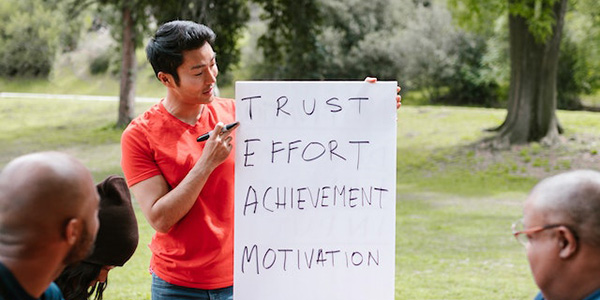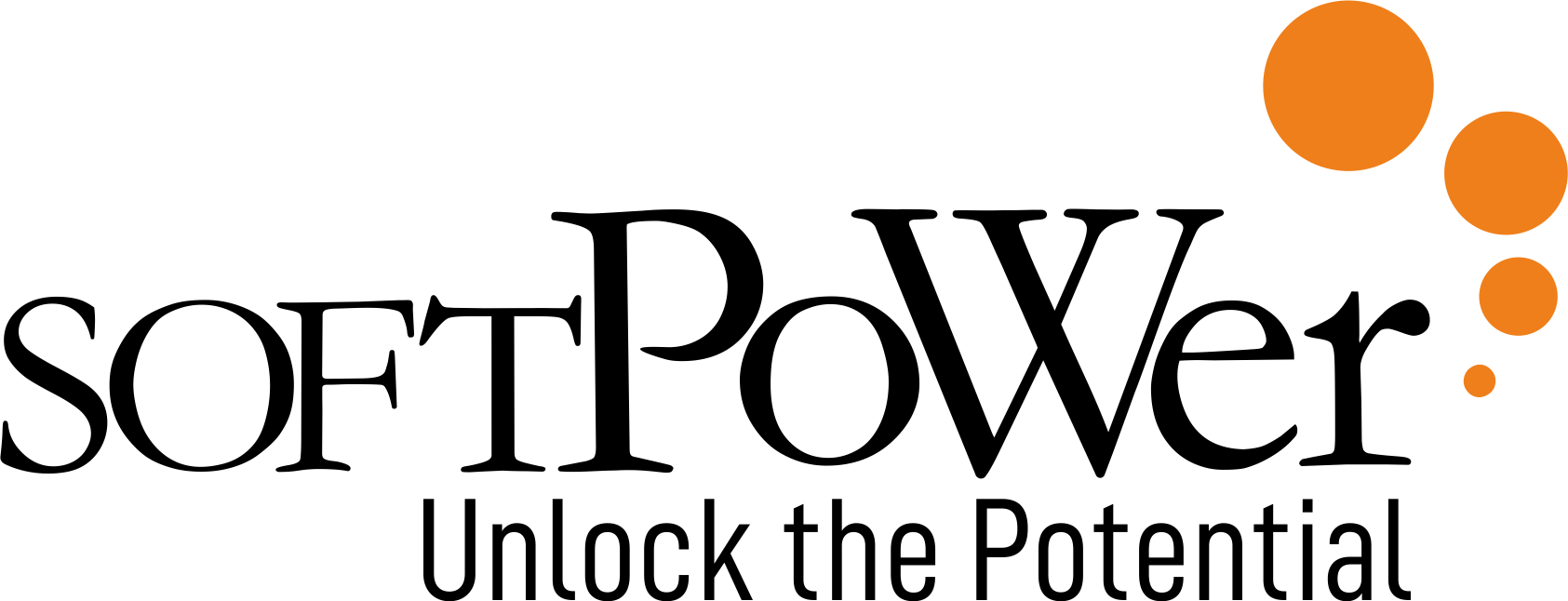Programmes

Self leadership
Self leadership is a key component in upskilling employees and indeed the next generation. Leadership is a broad all-encompassing term, but self leadership is where the most immediate impacts can be experienced. We know that one who cannot control what is under their hat, will not control what is under their roof. SOFT POWER is committed to helping people develop new ways of thinking to create a happy and fulfilling attitude to life. When our employees can successfully create fulfilment in their personal life they will quickly learn how to use those skills in their work life and thereby foster happiness as their life goal.

Leading others
Leading others is the second part and involves learning more about what makes people tick; what drives them in the workplace; essentially what makes them do what they do. When leaders understand more about this they can create situations which are more likely to draw people in, and thereby develop connections and commitment within the workplace. Strong leadership involves getting the team onboard with the overall direction of the work they are focused on. It is an influencing strategy and leads to improved overall wellbeing within the team.

Fundamental Soft Skills & Keys to Success
While the situations of each staff member and team are different, there are certain commonalities. The question is why are some successful and some not? We know that if we do exactly the same things that successful people do and think the way they think, we can also be successful. Now, the argument is that the meaning of success is different to people too. While all these can be true, can we develop strategies for success? The answer is a resounding YES. We can model others who we think are successful. Because success is the sum of small things done well, anyone can replicate success!

Happiness & Wellbeing
Many have a false belief that money will bring happiness. It’s true we do need our basic necessities covered but after that money is often not the key driver of happiness. Knowing our values and purpose are key factors in ones happiness. We all work or do business with an ultimate aim of happiness, but often people find happiness in external factors, which are not lasting. The wellbeing of a person is a holistic way of looking at someone’s ability. We now give importance to Health, Safety and Wellbeing, which is the mental health part.

Managing Time & Design Thinking
Many people talk about time management, as life management. It starts with a “do list” and prioritising, as well as understanding “important Vs urgent” in daily life. Managing time is a skill and not a talent and hence it is learnable like soft skills. Studies show that when the time is well managed in a day, our productivity increases, we have increased focus and happiness with a sense of achievement. Managing distractions and communicating effectively are key. Creative thinking is very rare in normal work environment as we get conditioned to do things in a certain way. It takes self leadership to pause, take a step back and think through the desired outcome.

Transforming Communication
Most work places have their own communication strategies. In general, if a person wants to achieve something out of a communication, there are certain strategies they can use to their advantage. It is about building a rapport among the team, being empathetic to others, and learning how active listening practices are fundamental to an effective communication. It is important to emphasise “we are in this together” approach. The other aspect is in asking the right questions to increase the personalised experience of clients and customers, as the market demands customised service rather “one size fits all” approach in this modern world due to increased competition.

Project Management
Understanding the principles of project management is essential if we want to successfully implement strong goal setting in life or work. These include strategies of managing time, finance, risk, client management etc. which will empower the employees even if they are not project managers. In fact it is a fundamental topic for effective implementation of anything. Many people do not understand the holistic or big picture and it can be a reason for persistant tunnel vision.

Smart Time Manager
Mathew developed the Smart Time Manager (STM) for daily use by people at work or home to achieve their goals with increased clarity. It encourages many skills, research and regular self-reflection. It makes people think and engage in the short term and long term tasks rather than just a “to do list” approach. At the end of the day – we want our people to say “ tta..da..” with a smile!

Our Approach
Assess
We work with organisations to train their employees in soft skills. Our discussions with group leaders helps identify what the group can do better with self-motivation and understanding of the basic soft skills available. As the economy moves increasingly to service based, it is important that such skills become a vital skill set in general wellbeing. For example – our training programmes with an emphasis on goal setting, resilience, personal development etc are well appreciated by individuals. Hence we can discuss and do a gap analysis and work with the leaders to cover the training needs of their staff in soft skills development.
Develop
Once we have the assessment, we can propose suitable training options and agree a time frame for the trainings. Soft skill gives people the right direction and motivation. They get more confident in communication, managing tasks, meeting productivity and managing customers and clients. It is understood that they support each other in a team, have a bigger picture and an increased sense of growth.
Support
Our trainings are designed as half day sessions with small groups for individual trainings and larger group for mass trainings or key note talks. Group leaders are supported in providing ongoing motivational materials, latest research and wellbeing ideas. There are in-house or centrally located training programmes every week which organisations can book for the proposed number of attendees. We also collect feedback so we can continue to improve on our training.
